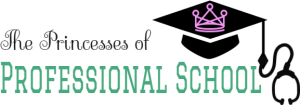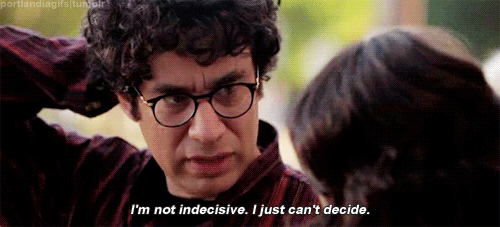Theresa here! Before I start this post, I just want to say CONGRATS to anyone reading this who started (or will start) med/pharm/dental/nursing/PA/etc. school this year! Good luck on your first year of what I am sure is going to be a wild and exciting journey!
————————————————————————–
If you’re considering going to medical school, but haven’t heard the phrase “Last Summer”, it’s probably about time you put it on the list of “Things Medical Students Won’t Stop Talking About” right next to Step 1 and how unfair the last exam was. For those of you who don’t know, “Last Summer” is the slightly inauspicious term for the more disheartening reality that the time between 1st and 2nd year of med school will literally be your last “free” summer. After 2nd year, you get thrown right into 3rd year, almost without getting a chance to take a breath from the drowning that is studying for a taking Step 1. Sayonara to your summers until you retire from being a doctor!
OK. I’m realizing that this post is kinda on the grim side, so I’ll try and lighten up a bit. (Might be because I just took an exam on GI pathology, but who knows…)
 Puppies are always a good cure for post-exam blues, right?
Puppies are always a good cure for post-exam blues, right?
Even though during your “Last Summer”you technically don’t have to do anything, there’s a unwritten rule that you still should be doing something. Why you may ask? The answer to most reasons why you do anything in med school: landing a residency. When applying, residency programs will often look at what you did during your first and second years, especially in highly competitive programs/specialties like optho or ENT. Likewise, certain programs value some “summer activities” higher than others (e.g. academic residency programs LOVE research). But this doesn’t mean that you must do research if you want to get into a competitive program. Although “Last Summer” activities are important, residencies weigh Step 1, class grades and letters of recommendation much higher. Plus, med school is a long four years — there’s plenty of time to squeeze in some research for those top tier programs if you manage your time well. In any event, there are SO MANY different things you can do in those precious few months between first and second year, so here’s a quick and dirty list of some of the things me and my classmates did this summer!
- Research. I’ll get this one out of the way now. Probably by far the most popular “Last Summer” thing to do. Most students either do clinical or basic science (“bench”) research. If you’re looking to get a publication/paper out of a project, clinical research is probably the easiest and best way to go. Bench research is notorious for being “slow” in the sense that experiments can take awhile to complete and the data needed to be gathered can be large. So unless you jump on a project right before they decide to submit a paper, it’s unlikely that a couple of months doing bench research will award you a first-author paper. However, having a background in basic science research is a invaluable skill, especially if you go on to do clinical research later. Another plus for research is that there are quite a few programs that offer stipends so you won’t have to eat Ramen every day trying to save money until your loans come in at the beginning of second year. I ended up doing a research program through my school called the “Student Summer Research Program” (I know, super creative title, right?) in which I conducted molecular biology research in a basic science lab. Going through the program was wonderful since we were able to present posters and submit an abstract at the end of the summer (it’s not a paper in Nature, but hey, I got my name on something!). I was also lucky enough to work with a great group of lab mates which made being in the lab (almost) every day of my last summer worthwhile!
- Travel. Probably the second most common thing to do. A lot of kids in my class did some kind of medical mission trip to an under-served country and also used the time as a vacation too (the affectionate term being “volun-tourism”). It’s for sure a great way to do some community service, practice your rudimentary medical skills and learn about a different culture at the same time. It can get a bit pricey though, especially depending on what country you want to go to. However, always check with your school to see if they offer scholarships or grants for students who wish to volunteer over the summer. The alumni association at my school would give students anywhere from $500-$1000 to fund their trip. It might not be much, but it’s at least a plane ticket. But traveling for the entire summer to go on a mission trip is not the only travel you can (or should) do! If you take anything away from this post, please hear this: take time to go somewhere while you still can. This is your time you’ll have so much free time. It doesn’t have to be as big as going transcontinental. Take a few days and do a small road trip. Set aside a week at some point and just go.
- Shadowing. Many students, especially those who don’t have any idea what specialty they want to go into, will use the summer to explore the medical field a bit more and spend more time with patients. If you can set it up and have good connections, it can be easy to shadow a doc for a couple months. Sometimes, you can technically work for the doctor’s practice and get a stipend or some form of compensation for spending time there!
- Tutoring/Teaching. Many schools have summer academic programs for undergraduates or high school kids in their community where med students can sign up to teach classes, most likely science. It’s a great way to stay sharp with a lot of the knowledge you learned during first year, plus it’s hard to find something more rewarding than teaching kids, especially if you can encourage them to pursue a career in medicine! Again, if you find yourself a tutoring program, most will have a form of compensation and/or housing stipend to get you through the summer. You can also tutor for companies, such as Kaplan, in which you can help kids with the MCAT or SAT.
- Working. Sometimes you just want to make a few bucks to save up for second year expenses. You don’t even have to have a job in the medical field. Just showing that you’re out and doing something is still better than nothing!
I don’t want to make this post too long, so I’ll end it here with what I think are the top 5 “Last Summer” activities. If you’re just starting med school, don’t worry about this for another couple months and try and focus on getting yourself settled in med school. One thing you MUST do during your last summer is take time for yourself. It takes a lot to get through year 1 and year 2 won’t be any less stressful, so take time to RELAX. Visit friends, go hiking, sit at home and binge-watch Stranger Things (which I totally recommend, btw). It’s your time to do whatever you want, so you do you during you last summer for a very looooooooong time.
Until next time!
❤ Theresa

















